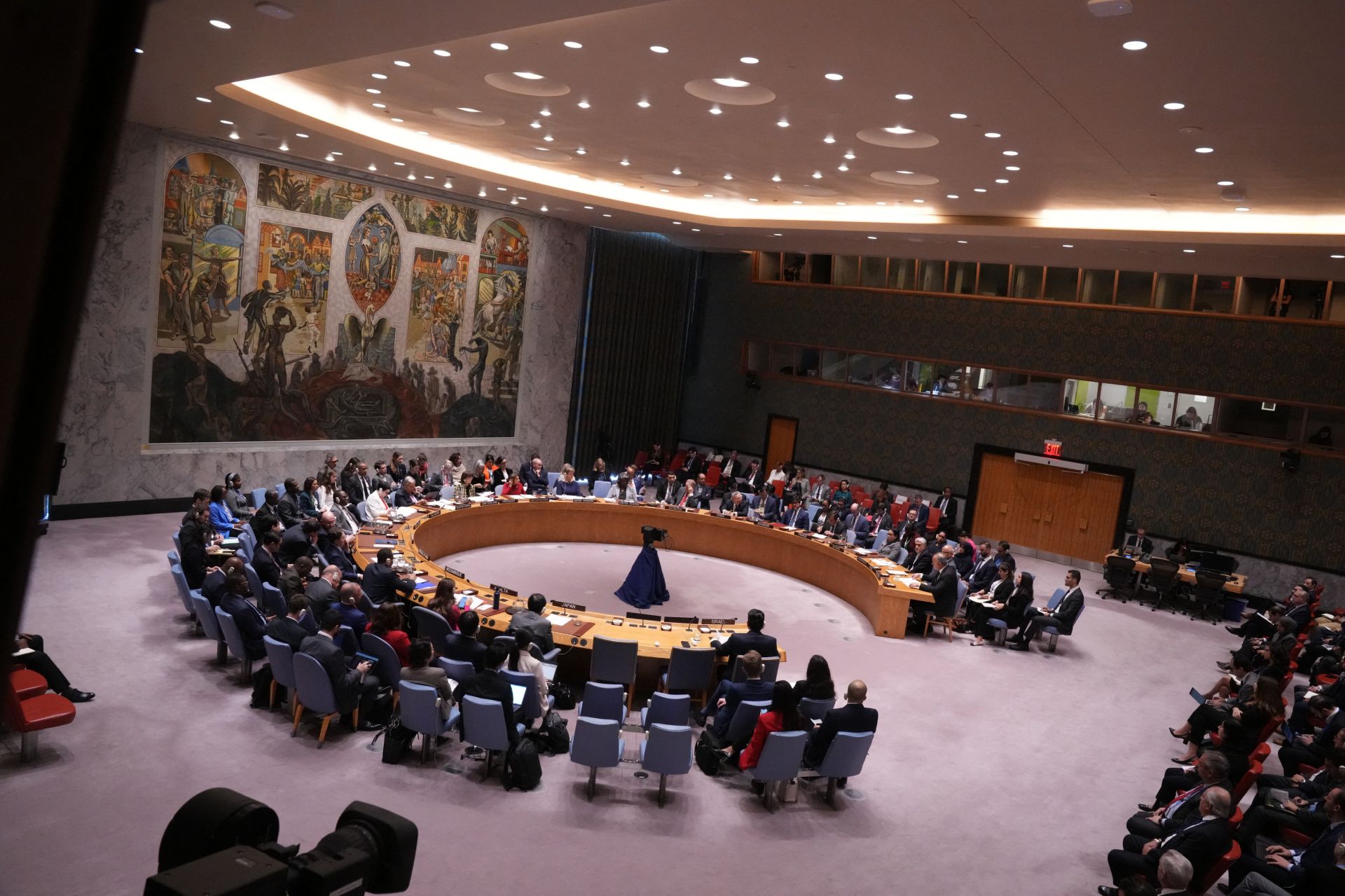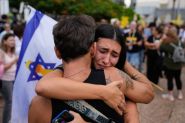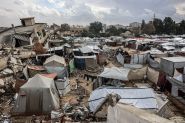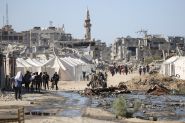- Home
- Middle East
- UN Security Council Calls for De-escalation in Lebanon

Lebanon Ambassador to the Untied Nations Hadi Hachem speaks at the Security Council meeting on the situation in the Middle East at the United Nations headquarters on October 2, 2024 in New York. ©Bryan R. SMITH / AFP
At the UN Security Council meeting, the international community called for de-escalation in response to the intensifying clashes between Israel and Hezbollah. Over one million people are displaced in Lebanon, and Israeli airstrikes targeting Hezbollah are causing numerous civilian casualties, worsening the humanitarian crisis.
The UN Security Council, convening urgently on Friday, voiced growing concern over the escalating conflict between the Israeli army and Hezbollah in Lebanon.
During the session, Under-Secretary-General for Political Affairs Rosemary DiCarlo urged for immediate de-escalation, stressing the need for a diplomatic solution to avert a large-scale catastrophe. "We must now make every possible effort to prevent a disaster that would impact not only Lebanon and Israel but the entire region," she stated.
Jean-Pierre Lacroix, Under-Secretary-General for Peace Operations, also expressed his concern, condemning the consequences of the conflict on the ground, including the intensification of Israeli military operations and the increasing number of displaced civilians. He denounced Israeli attacks targeting UN installations and peacekeepers from the United Nations Interim Force in Lebanon (UNIFIL), a violation of international law.
Four UNIFIL soldiers were injured during these clashes, and several of the mission's bases had to be temporarily evacuated due to heightened risks. Despite these dangers, UNIFIL continues its humanitarian operations on the ground, maintaining close coordination with the Lebanese army.
The international community, notably the United States and France, also spoke during this meeting. US Deputy Ambassador Robert Wood emphasized the importance of a "strong and truly sovereign Lebanon, protected by a legitimate security force." US Secretary of State Antony Blinken reiterated the need for a diplomatic solution, underlining the importance of Lebanon's stability to avoid regional escalation. "We are continuing to engage intensely to prevent a broader conflict in the region," he stated.
The UK ambassador, Barbara Woodford, said that “all parties must do everything possible to protect civilians and fully comply with international humanitarian law, the [UK] has repeatedly and consistently called for an immediate ceasefire and I repeat that call today.”
The Security Council also called for the implementation of Resolutions 1559 and 1701, which demand the disarmament of all non-state forces in Lebanon and the withdrawal of Israeli troops from the south of the country. Discussions also addressed the urgency of strengthening the Lebanese Armed Forces to restore the state's full sovereignty over its territory.
Israel has issued evacuation orders for a quarter of Lebanon's territory, affecting more than 100 villages. This has exacerbated the humanitarian crisis, with over a million people fleeing southern Lebanon, approximately 400,000 seeking refuge in Syria, and thousands more desperately trying to leave the country.
According to the Lebanese Ministry of Health, the death toll has surpassed 2,000 since the start of the month, with over 300 deaths in the past week alone. The health sector is under immense pressure, and the UN has launched a flash appeal for $425 million to meet immediate humanitarian needs.
Israeli Airstrikes on Beirut
In a new escalation, Israeli airstrikes hit areas outside Beirut's southern suburbs for the third time. On Thursday evening, October 10, airstrikes targeted the densely populated neighborhoods of Ras al-Nabeh and Noueiri, killing 22 people and injuring 117 others.
Calls for a Ceasefire
As the violence intensifies, calls for an immediate ceasefire are growing. The Security Council has urged Israel to withdraw its troops from southern Lebanon and Hezbollah to stop its rocket fire on Israel. France is preparing an international conference on Lebanon scheduled for October 24, aiming to mobilize more aid for the country and encourage a lasting diplomatic solution.
In the meantime, the humanitarian situation in Lebanon continues to deteriorate, and the UN is urging member states to respond to its appeal for aid to support relief efforts in the country.
Read more



Comments